- What We Do
- Agriculture and Food Security
- Democracy, Human Rights and Governance
- Economic Growth and Trade
- Education
- Environment and Global Climate Change
- Gender Equality and Women's Empowerment
- Global Health
- Humanitarian Assistance
- Transformation at USAID
- Water and Sanitation
- Working in Crises and Conflict
- U.S. Global Development Lab
Speeches Shim

April 2018
A Focus on Infectious Disease
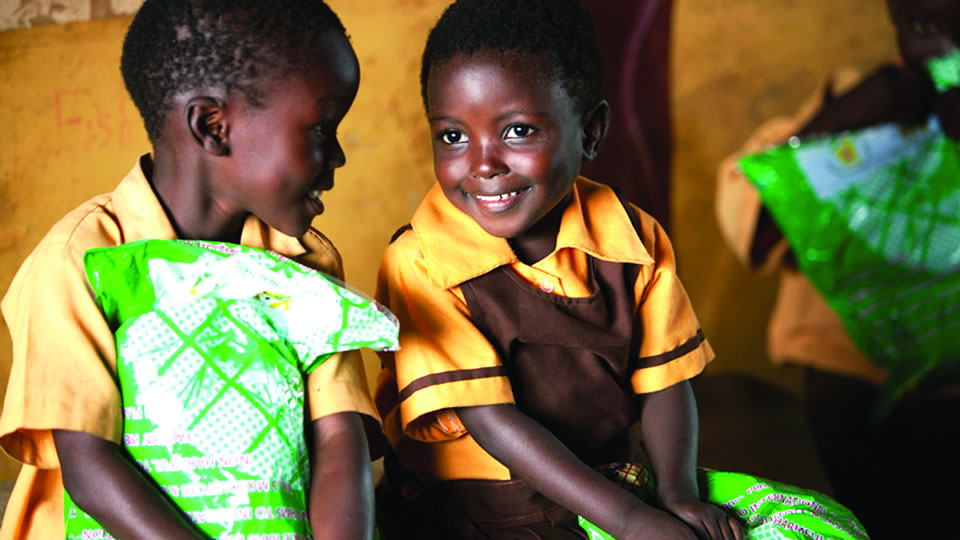
Photo credit:Diana Mrazikova/NetWorks
Scores of infectious diseases threaten humankind - both familiar ones like malaria, HIV, tuberculosis and neglected tropical diseases, as well as emerging viruses and bacterial infections such as Ebola, H5N1 avian flu and Zika. April's Global Health newsletter highlights USAID's work in malaria, NTDs, emerging threats and previews a new exhibit: Outbreak.
U.S. President's Malaria Initiative Releases 12th Annual Report
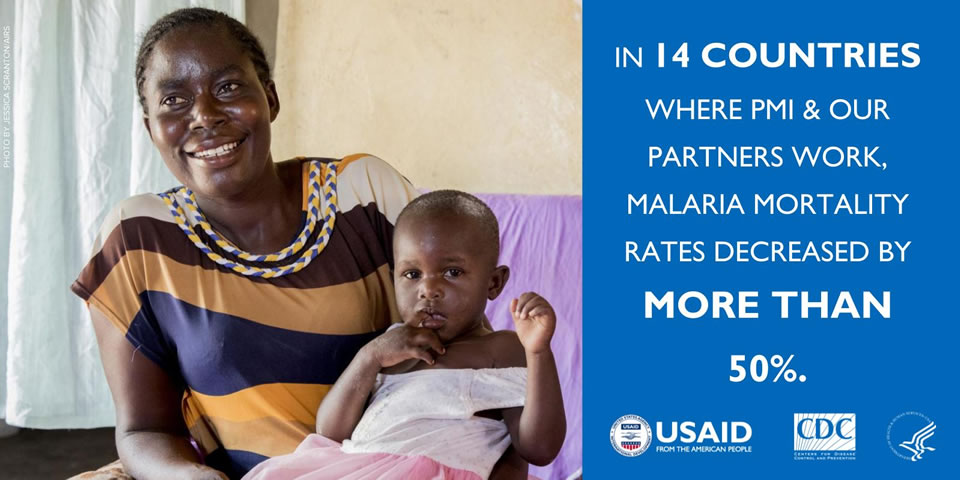
Photo credit: PMI
The U.S. President’s Malaria Initiative (PMI) was launched in 2006 by President George W. Bush and marked historic, bold U.S. leadership in the fight against malaria. Thanks to the sustained bipartisan support of Congress we have enjoyed immense success and progress against the disease. Over the past 12+ years, PMI, led by USAID and implemented together with the Centers for Disease Control and Prevention (CDC) [PDF, 1.6MB], has worked with malaria affected countries, countless communities and partners to drive progress in malaria control.
PMI activities expanded into five new countries - Burkina Faso, Cameroon, Côte d’Ivoire, Niger and Sierra Leone - is squarely underway. With this expansion, PMI now has programs in 24 malaria endemic countries in sub-Saharan Africa, benefiting 570 million people from the Sahel to the Horn to Southern Africa. In addition, PMI has three programs in the Greater Mekong Subregion - Burma and Cambodia country programs and a regional program based out of Thailand - all three aimed at tackling the challenge of antimalarial drug resistance.
On April 25, PMI alongside global partners, observed World Malaria Day to commemorate the progress toward a world without malaria and mobilize action to combat the disease. On this occasion, PMI released its 12th Annual Report to Congress, which describes the U.S. Government’s contributions to the global fight against malaria.
- PMI 12th Annual Report to Congress [PDF, 2.8MB]
- PMI by the Numbers [PDF, 2.7MB]
- 2018 PMI Country Profiles
- Administrator Green Statement
- Medium Blog: Fighting Malaria and Saving Lives
USAID Welcomes Dr. Ken Staley, U.S. Global Malaria Coordinator
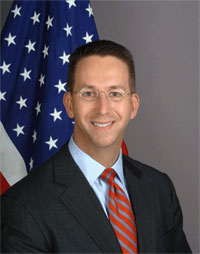
Photo credit: USAID
In April, Dr. Kenneth Staley began his tenure as the new Global Malaria Coordinator with PMI. Dr. Staley’s appointment by the White House was announced April 9. Read a welcome statement by USAID Administrator Mark Green.
Dr. Staley received his medical degree from the Carver College of Medicine at the University of Iowa. He also earned a Master of Public Administration degree from John F. Kennedy School of Government at Harvard University, and he is an honors graduate of Washington University in Saint Louis.
In the George W. Bush administration, Dr. Staley served in the State Department as Acting Deputy Assistant Secretary of State for Counterproliferation and as Director for Biodefense Policy at the White House Homeland Security Council. More recently, Dr. Staley has worked on product development and innovation as a Director for Medtronic, and for the last few years he was with McKinsey & Company, where he led teams working on public health and crisis response, including Ebola and Middle Eastern Respiratory Syndrome (MERS).
- Rear Admiral Tim Ziemer Welcomes Dr. Kenneth Staley
- PMI Welcomes Dr. Kenneth Staley as the New U.S. Global Malaria Coordinator
Neglected Tropical Disease Program at 10
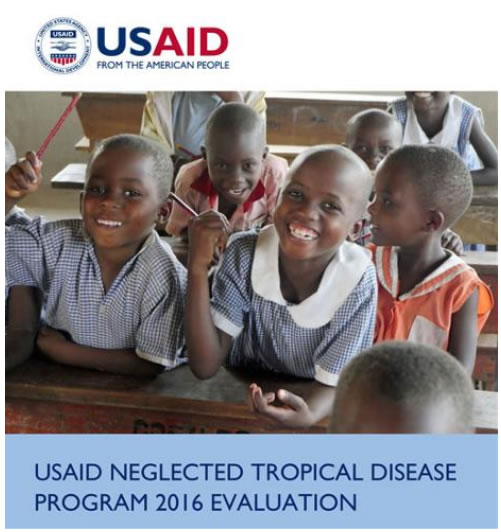
Photo credit: NTD
USAID's Neglected Tropical Disease Program began in 2006, primarily focusing on seven of the most prevalent NTDs - lymphatic filariasis (LF), trachoma, schistosomiasis, onchocerciasis and three soil-transmitted helminths (commonly known as hookworm, roundworm and whipworm). These diseases can be targeted through a highly effective integrated community treatment approach using drugs that have been proven safe and effective and can be delivered by trained non-health personnel. Over 10 years, USAID has provided 2 billion NTD treatments and leveraged $15.7 billion in drug donations. As a result, 252 million people live in communities that no longer require treatment for lymphatic filariasis, 98 million people live in communities that no longer require treatment for blinding trachoma and 3 million people live in communities in Africa that no longer require treatment for onchocerciasis.
USAID commissioned an independent evaluation that was conducted by the Johns Hopkins Bloomberg School of Public Health. The findings from the evaluation have implications for the future direction of USAID's NTD Program. Importantly, the evaluation will also be useful for the NTD community working at the global, regional and country levels. USAID and the global NTD community can apply these recommendations immediately and beyond as we approach the post-2020 era.
Download a copy of the USAID NTD Program 2016 Evaluation [PDF, 2.9MB], or read it at NeglectedDiseases.gov.
GLOBAL HEALTH HIGHLIGHTS
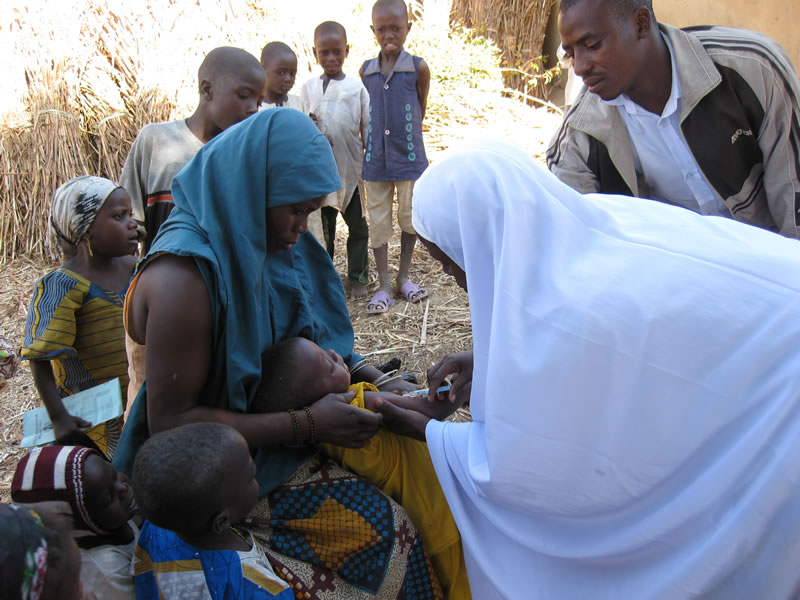
Preventing the Next Outbreak
Infectious disease outbreaks and epidemics are on the rise, threatening health and economic growth as well social stability, disproportionately affecting the poorest countries throughout the world, and posing direct threats to Americans' health at home and abroad. On March 13, senior representatives from USAID, CDC, U.S. Department of Defense, U.S. Department of Agriculture and private and public Global Health Security Agenda partners launched a report, Implementing the Global Health Security Agenda: Progress and Impact from U.S. Government Investments [PDF, 4.2MB], and held a discussion about how U.S. agencies are addressing these challenges and achieving results through results-oriented global partnerships.
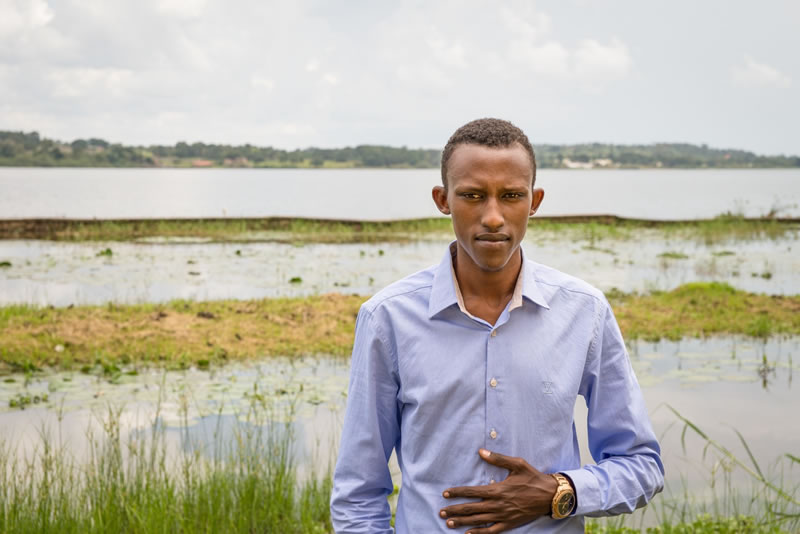
Photo credit: Katie G. Nelson/RTI International
Surviving the Snails of Uganda: A Young Man's Brush with a Mysterious Disease
As a teenager, Francis Angumya often played with his friends in Africa's largest lake, not understanding the dangers that lurked underneath. The 23-year-old student had left his home in rural Uganda to pursue a better education and brighter future - a search that ultimately brought him to the shores of Lake Victoria. He had enrolled at an all-boys high school just a short drive from Entebbe, a popular holiday destination on the lake’s northern shores. His wistful memories of afternoons swimming in Lake Victoria have all but washed away - replaced by a terrifying experience that changed his life forever. Read more of Francis' story on USAID's Medium blog.
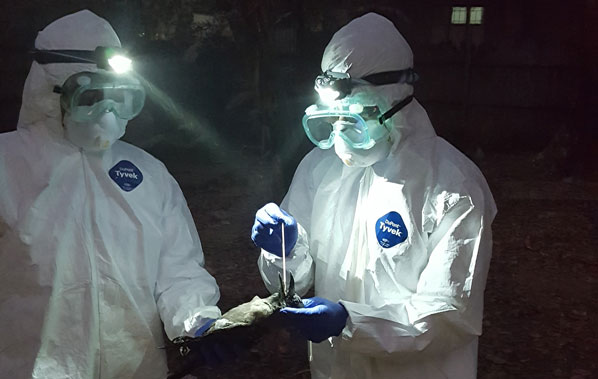
Photo credit: PREDICT
New Smithsonian Exhibition Explores Pandemics and Emerging Infectious Diseases
The Smithsonian's National Museum of Natural History in Washington, D.C., will mark the 100th anniversary of the Great Influenza pandemic of 1918 with a new exhibition, ”Outbreak: Epidemics in a Connected World,” which has a One Health focus and will remain on view for the public for three years.
The exhibition will explore:
- The origins of zoonotic diseases. Since the rise of domestication, human interactions with other animals have increased and changed. Today, three-quarters of all new infectious diseases affecting humans originate in animals, and "Outbreak" will focus on how they spill over, spread and how they can be contained.
- Humans' role in spreading animal-borne viruses. "Outbreak" will look at the effects of habitat fragmentation and diversity loss, urbanization and global travel on increasing the risks of zoonotic-disease emergence and highlight the role of scientific research and behavior change in lowering risks of disease transmission.
- How outbreaks are handled. Future outbreaks are certain to occur. The exhibition introduces people who play many different roles in the global fight against epidemics, from identifying their animal origins to developing vaccines and interventions to help prevent the next one.
USAID GH MEDIA MENTIONS
Stopping Epidemics Early Protects National Security
May 8, 2018
In a Corner of Senegal, a Victory Over Malaria
May 3, 2018
Despite Political Unrest in Kenya, PMI AIRS Provides Protection Against Malaria
March 30, 2018
The Male Midwife Who Saves Lives in South Sudan
March 30, 2018

Comment
Make a general inquiry or suggest an improvement.